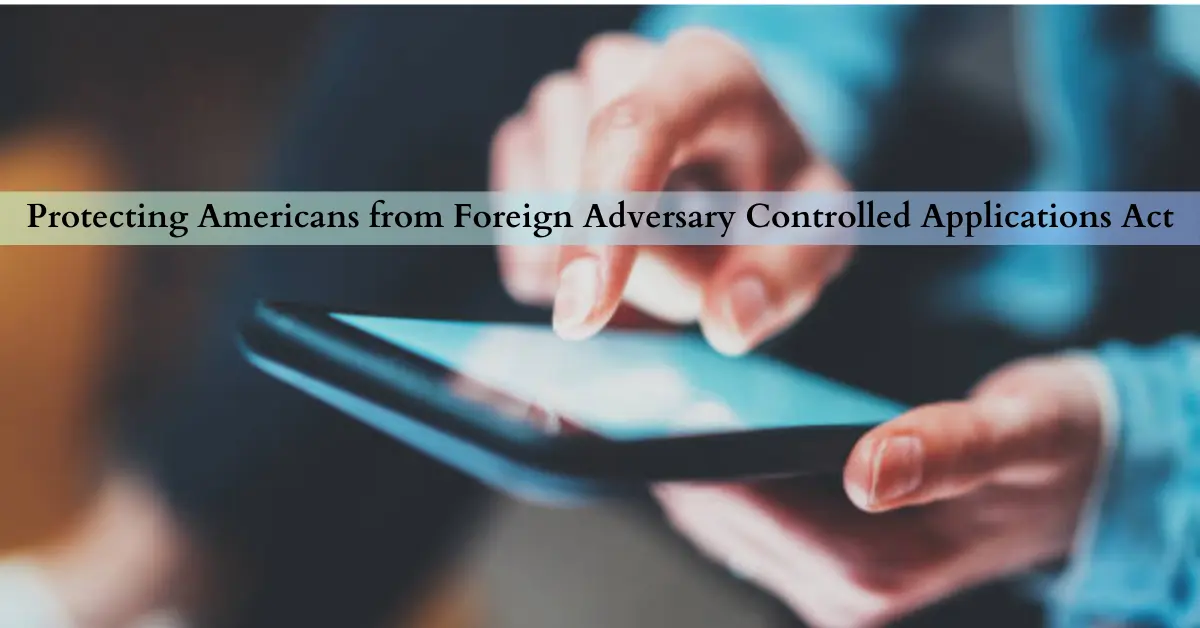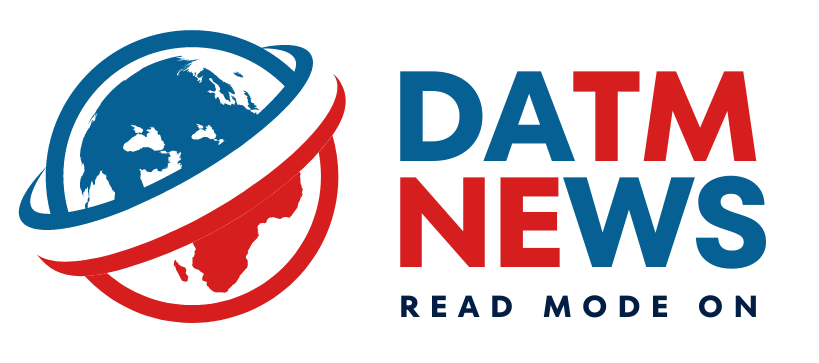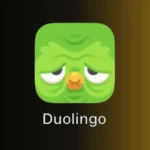Protecting Americans from Foreign Adversary Controlled Applications Act: A Breakdown
The Protecting Americans from Foreign Adversary Controlled Applications Act (H.R.7521) is a recently passed legislation in the United States Congress. Signed into law on March 11, 2024, it aims to address national security concerns surrounding applications developed or controlled by entities deemed “foreign adversaries.”
What Does the H.R.7521 Act Do?
The primary focus of the Act is on applications like TikTok, which is owned by the Chinese company ByteDance. The Act prohibits app stores and web hosting services in the US from offering applications controlled by foreign adversaries.
However, it provides an escape clause: these applications can remain available if they sever ties with the foreign adversary-controlled entity. This could involve a complete divestment, meaning the foreign entity relinquishes ownership and control of the application.
The National Security Concerns
Proponents of the Act argue that applications controlled by foreign adversaries pose a threat to national security. They raise concerns about potential data collection by these entities, which could include user information, browsing habits, and even location data. This data, they argue, could be used for espionage or influence operations. Additionally, they worry about the potential for foreign adversaries to manipulate content or spread disinformation on these platforms.
Protecting Americans from Foreign Adversary Controlled Applications Act: Criticisms and Concerns
Critics of the Act argue that it’s overly broad and could stifle innovation. They also raise concerns about the definition of “foreign adversary” and the potential for the Act to be used for political purposes. Additionally, some argue that the Act might not be effective in achieving its goals. They point out that users could simply switch to alternative platforms controlled by foreign adversaries.
Protecting Americans from Foreign Adversary Controlled Applications Act: The Future of the Act
The Act is a significant development with potential consequences for the way Americans use social media and other online applications. It remains to be seen how the Act will be implemented and enforced. Challenges to the Act’s provisions are also possible, potentially leading to further legal battles.
Here are some additional points to consider:
- The Protecting Americans from Foreign Adversary Controlled Applications Act doesn’t ban applications outright. It gives them a chance to comply by severing ties with foreign adversaries.
- The Act establishes a process for the President to identify applications that pose a national security threat and take appropriate action.
- The long-term impact of the Act on the social media landscape in the US is yet to be determined.
It’s important to stay informed on how this Act unfolds and how it might affect the applications you use.
Glad to join @ScrippsNews to discuss H.R. 7521, which targets social media companies controlled by foreign adversaries.
— Rep. Tim Walberg (@RepWalberg) March 12, 2024
This bill gives apps like TikTok an easy choice to continue operations – all they need to do is break up with the CCP. pic.twitter.com/87y1CuqcyI
Is H.R.7521 applicable only on TikTok?
No, H.R.7521 is not applicable only on TikTok. While TikTok is a major concern and was likely a motivating factor behind the Act, the legislation has a broader scope.
Here’s why:
- Focuses on Foreign Adversary Control: The Act targets applications controlled by entities deemed “foreign adversaries” of the US, including China, Russia, Iran, and North Korea. This means any application, not just TikTok, falls under scrutiny if it meets this criteria.
- Divestment as an Option: The Act doesn’t outright ban these applications. It allows them to stay operational in the US if they sever ties with the foreign adversary-controlled entity. This could involve selling the application to a US-based company.
In essence, H.R.7521 functions as a national security measure targeting applications considered a potential threat due to foreign adversary control, not just a specific platform like TikTok.
Also read: Why Are So Many Young People Getting Cancer?
Does Protecting Americans from Foreign Adversary Controlled Applications Act (H.R.7521) ban TikTok?
No, the Protecting Americans from Foreign Adversary Controlled Applications Act (H.R.7521) does not directly ban TikTok. It offers TikTok a way to stay operational in the US: divestment.
Here’s the key point: H.R.7521 targets applications controlled by companies in countries considered adversaries. If TikTok severs ties with its Chinese parent company ByteDance, it can likely continue operating in the US.
FAQs
1. What is H.R.7521?
A US law aiming to protect national security from apps controlled by foreign adversaries (like China, Russia).
2. Does H.R.7521 ban TikTok?
No. TikTok can stay if it cuts ties with its Chinese owner ByteDance.
3. Does H.R.7521 only target TikTok?
No. It applies to any app controlled by a foreign adversary deemed a national security threat.
4. What are the concerns in H.R.7521 ?
Data collection, manipulation of content, and potential for espionage by foreign adversaries.
5. What’s the future of H.R.7521?
The Act is new, and its long-term impact on apps and legal challenges are yet to be seen.
Content Contributor: Rehana Sengupta









